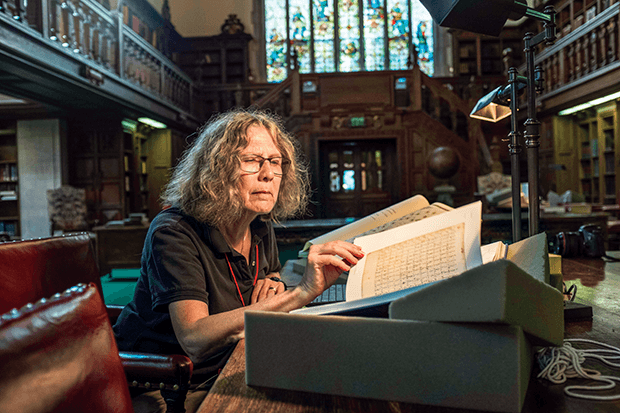A Career Judged as “Genius”
Historian Wins Prestigious MacArthur Fellowship
by Liam Farrell | photo courtesy of the Macarthur FoundationAs an independent historian who does a lot of work from home, Pamela Long ’65, M.A. ’69, Ph.D. ’79 has a general policy of not answering the phone so she can actually get some writing done.
So when the MacArthur Foundation got the answering machine when calling Long about winning one of its $625,000 “genius grants,” the message was about a letter she had written for another nominee so as not to tip anyone off.
“I was really shocked,” she says a few weeks later in her Washington, D.C., home. “Of course it was totally unexpected.”
Long, who specializes in the cultural impact of science and technology in the 16th century, took an unusual path to the award. She grew up on a dairy farm in Chestertown, Md., and went into social work after college before her love of history brought her back to academia. Although Long has plenty of higher education teaching on her resume, her career has largely been funded by grants and fellowships and she’s never had a tenure-track position.
It was initially deflating, but eventually she saw “huge advantages” in giving full focus to her research and being able to avoid the administrative responsibilities of institutional life.
“I applied for many jobs. Like many historians, I didn’t get one,” Long says. “I felt very discouraged until I started publishing my work.”
Her latest project focuses on a few decades in Rome during the 16th century, looking at the quotidian processes that resulted in projects like aqueducts, renovated roads and new palaces and churches. She is delving into contracts and discussions between the papacy and city government to get a window into how urban renewal functioned in a pre-professional society.
“I’m interested in the failures as well. Often the history of technology is written as if it’s one success after another,” Long says. “(My book) gives a very new view of how practitioners and learned people are interacting on the ground.”
Although the five-year MacArthur fellowship comes with no strings attached, Long has no visions of getting a yacht. She has little intention to stop pursuing the multiple book ideas already on her mind and is planning to use the funds to make her international research more frequent.
“I feel that I have a lot more flexibility than I had before,” she says. “I love what I’m doing. I’m obsessed with what I’m doing. So I think I’m going to keep doing it.”
0 Comments
Leave a Reply
* indicates a required field

